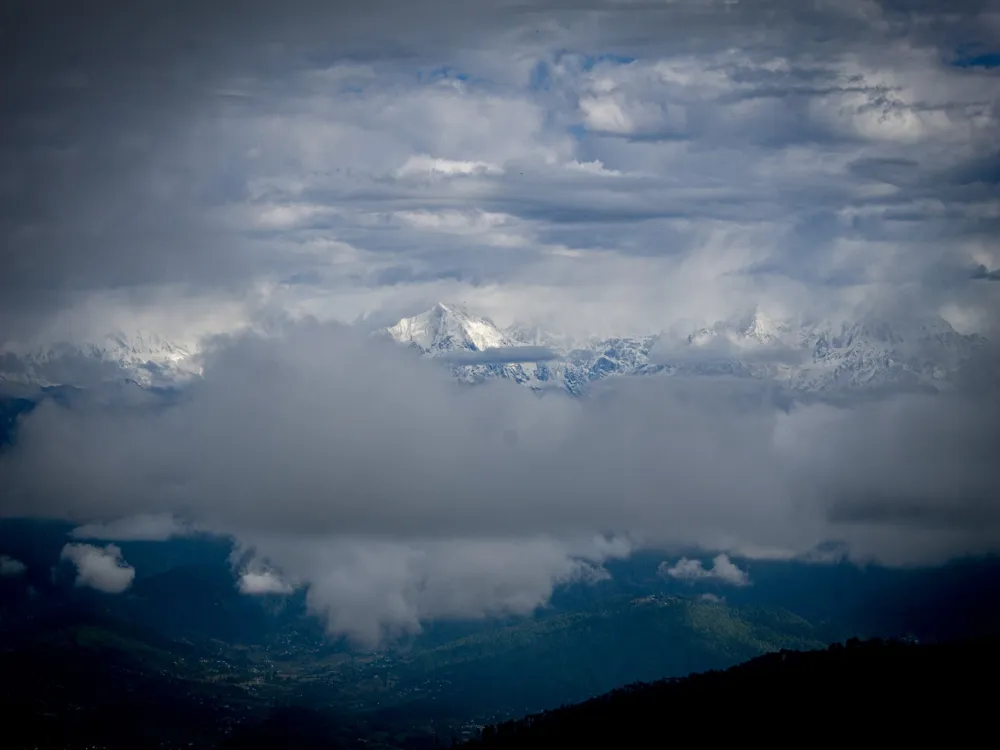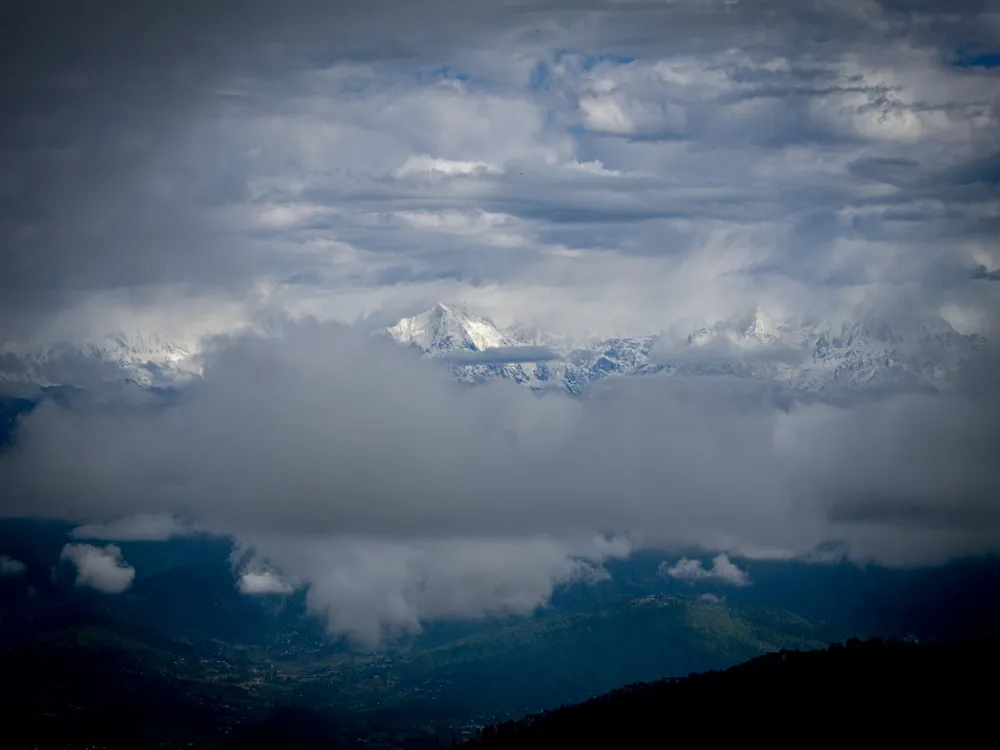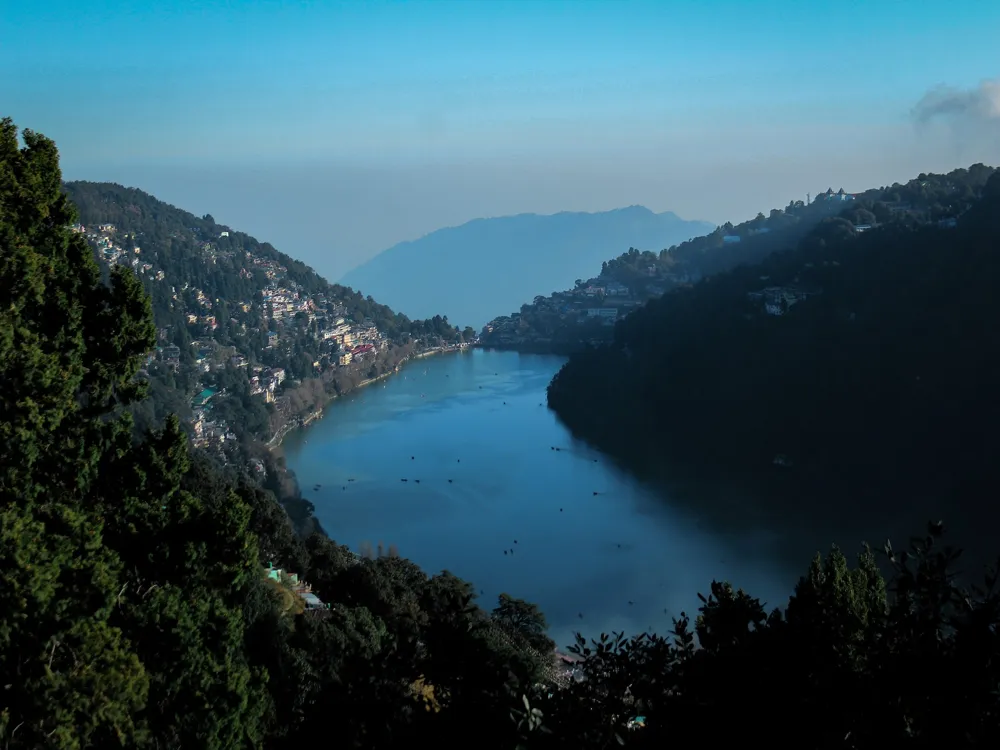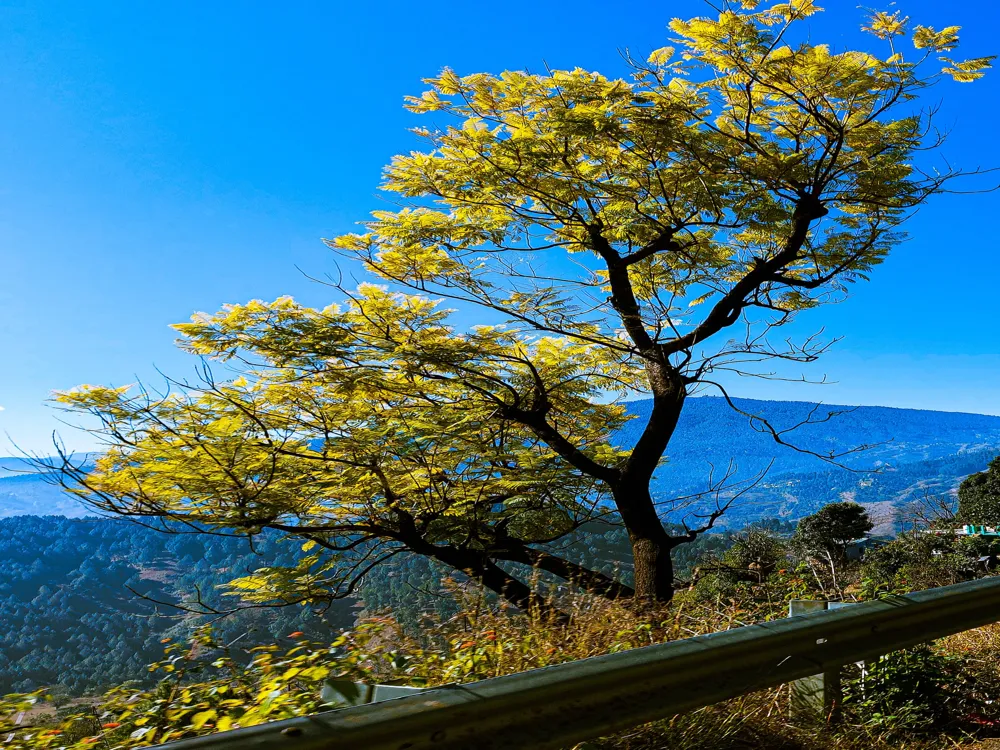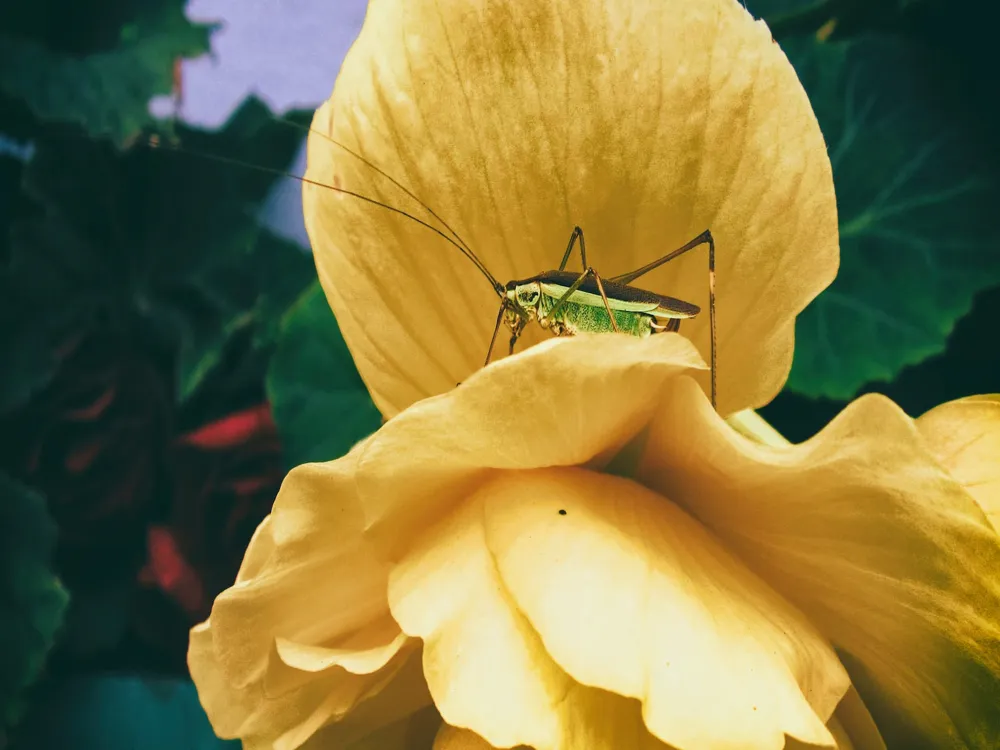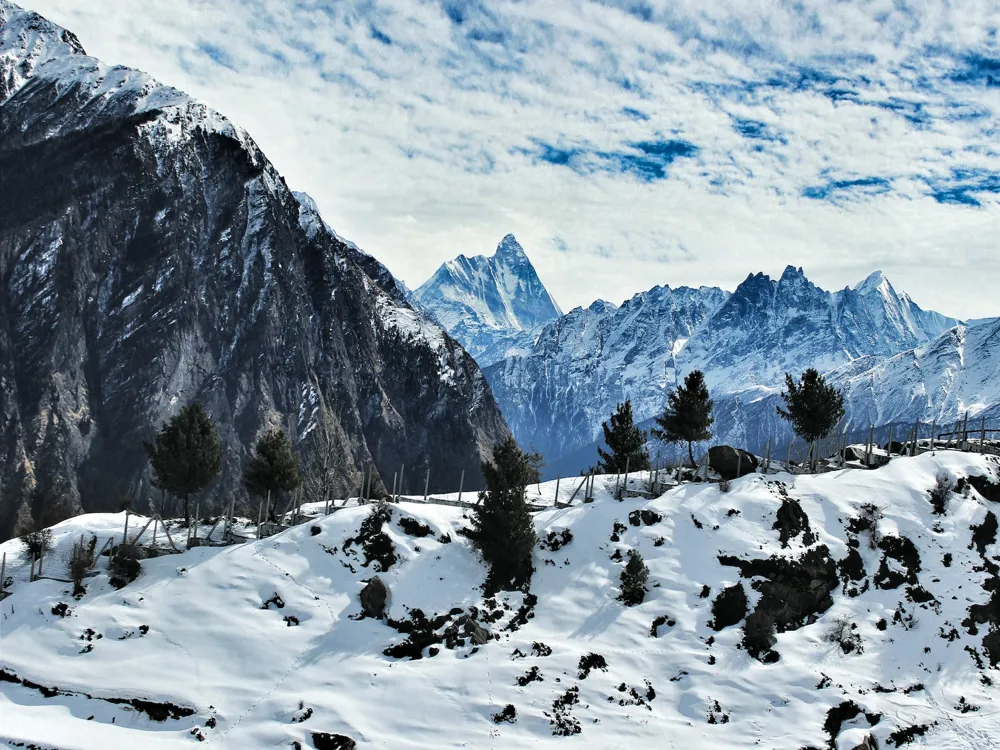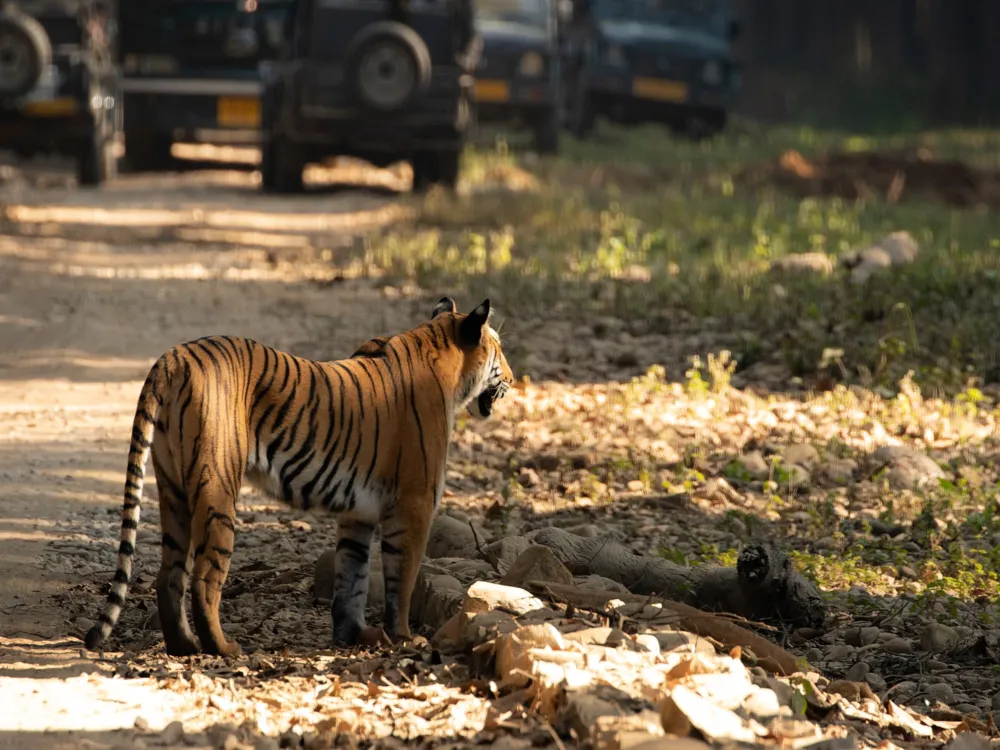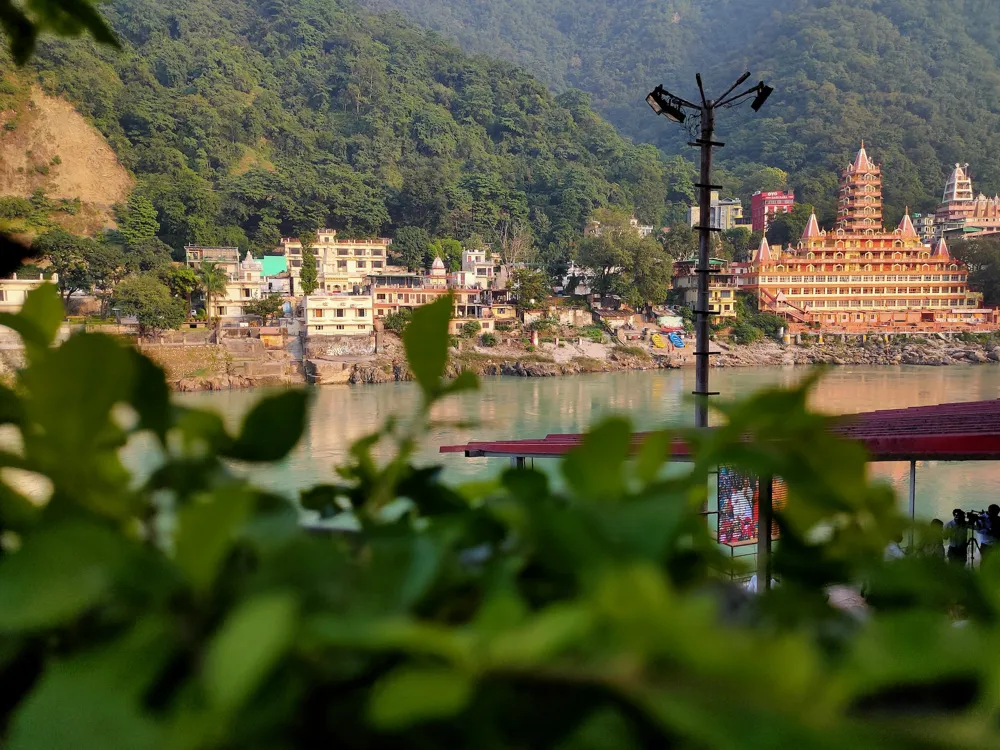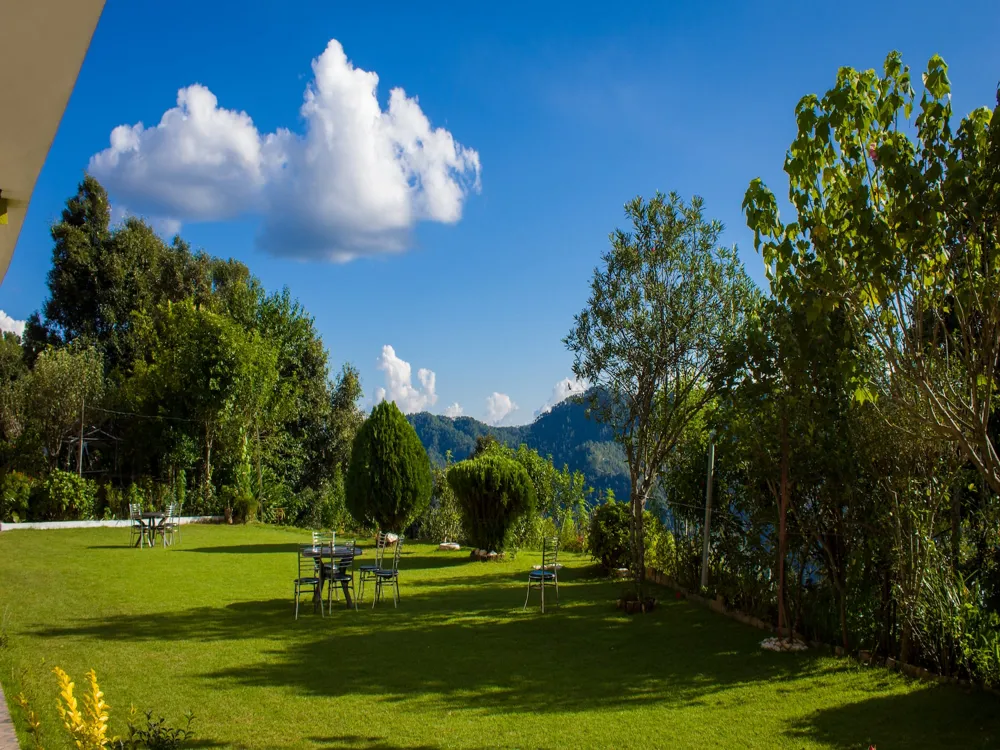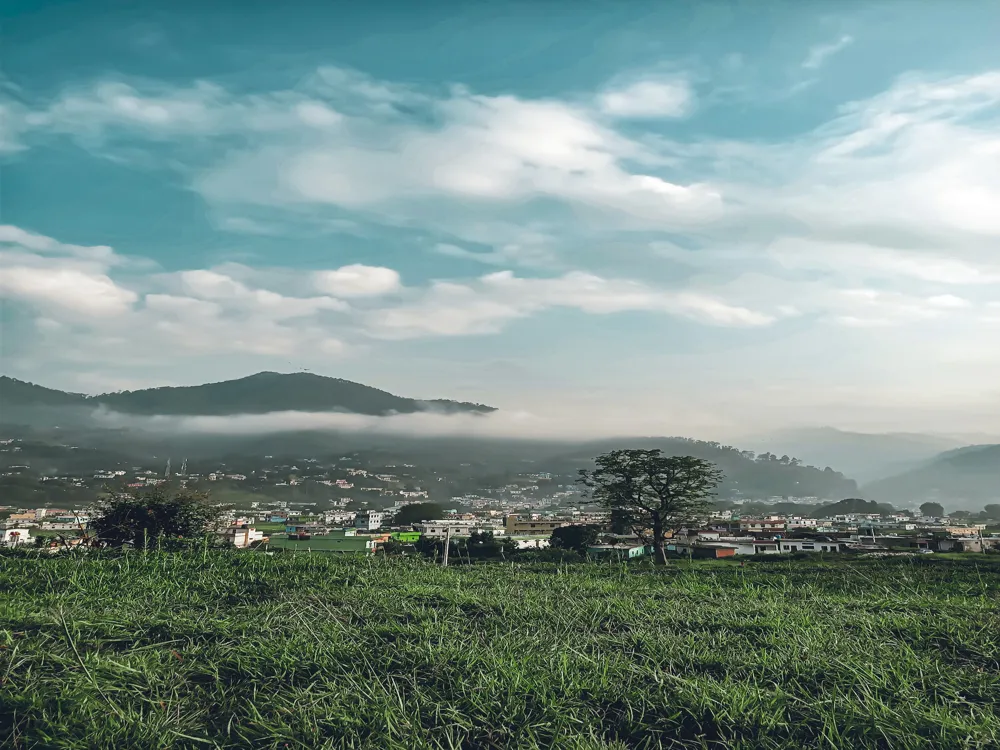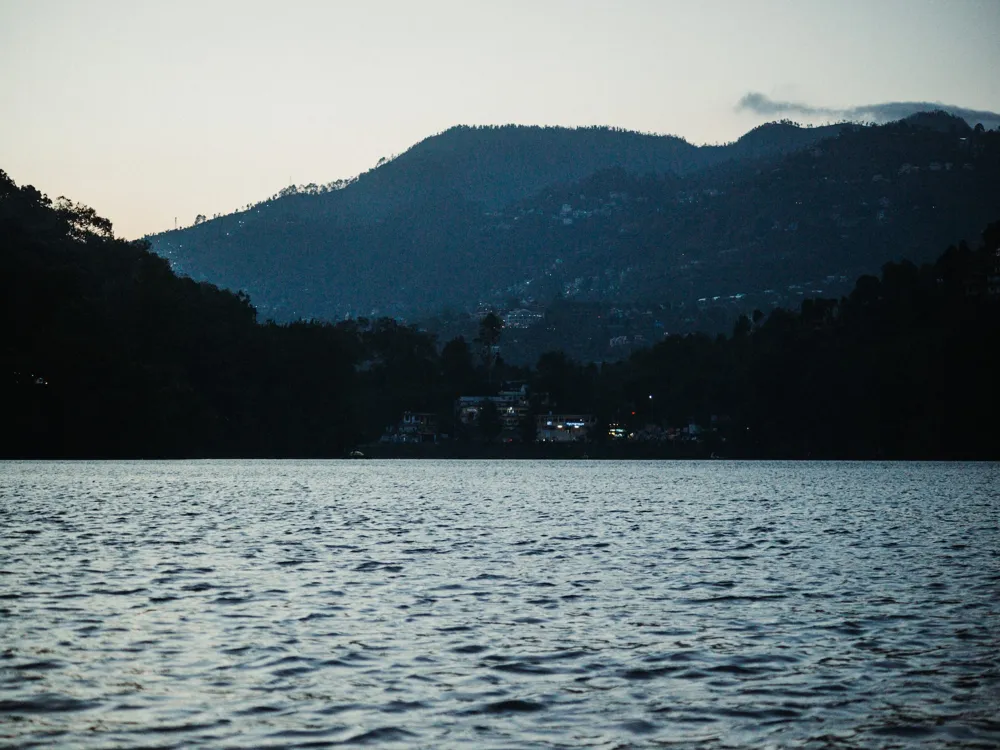Nestled in the lap of nature, Gwaldam is a serene hill station located in the Kausani region of Uttarakhand, India. This picturesque town, perched at an altitude of 1,938 meters above sea level, is a hidden gem waiting to be explored. Known for its panoramic views of the Himalayan peaks and its lush green surroundings, Gwaldam offers a tranquil escape from the hustle and bustle of city life. The beauty of Gwaldam lies in its untouched and pristine environment. The town is surrounded by dense forests and is adorned with small lakes, meadows, and gardens that bloom with vibrant flowers in the spring. The majestic Nanda Devi, Trishul, and Nanda Ghunti peaks form a stunning backdrop, creating a mesmerizing sight that leaves visitors spellbound. The climate in Gwaldam is pleasant throughout the year, with cool summers and chilly winters, making it an ideal destination for nature lovers and adventure enthusiasts alike. Gwaldam is not just about natural beauty; it's also rich in cultural heritage. The town is a melting pot of Kumaoni and Garhwali cultures, offering a unique blend of traditions, cuisines, and languages. The locals, known for their warm hospitality, add to the charm of this quaint hill station. Visitors can explore the local markets, savor the authentic flavors of Uttarakhand, and interact with the friendly residents to get a deeper understanding of the regional lifestyle. For adventure seekers, Gwaldam offers a plethora of activities. Trekking trails leading to Roopkund and Bedni Bugyal start from here, attracting trekkers from all over the world. The town also serves as a base camp for several other treks in the region. Apart from trekking, tourists can indulge in bird watching, nature walks, and camping under the starlit sky. Gwaldam is not just a destination; it's an experience that connects you with nature, culture, and yourself. Whether you're seeking solitude, adventure, or just a break from the ordinary, Gwaldam is the perfect getaway. With its enchanting beauty and serene ambiance, this quaint hill station is sure to leave an indelible mark on your heart. The architecture of Gwaldam is a fascinating amalgamation of Kumaoni and Tibetan influences, reflecting the rich cultural heritage of the region. The buildings in Gwaldam are predominantly constructed using locally sourced materials like stone, wood, and slate, which not only gives them a rustic charm but also makes them well-suited to the mountainous terrain and the climatic conditions of the area. Traditional Kumaoni houses, known as 'Aipan', are a common sight in Gwaldam. These houses are characterized by their distinctive geometric patterns and bright colors. The walls are usually made of stone and mud, which provide excellent insulation, keeping the interiors warm in winters and cool in summers. The roofs are sloped and covered with slates or wooden shingles, a design element essential for withstanding heavy snowfall during winters. Another notable feature of Gwaldam's architecture is the influence of Tibetan style, especially in the religious structures like temples and monasteries. The Buddhist monasteries, locally known as 'Gompas', are adorned with intricate carvings, vibrant thangka paintings, and prayer flags fluttering in the wind. These monasteries not only serve as places of worship but also as cultural centers, preserving the age-old traditions and practices of the Tibetan community. The fusion of Kumaoni and Tibetan architectural styles gives Gwaldam a unique aesthetic appeal. This blend is evident in the layout of the town, the design of the buildings, and even in the small details like window frames and doorways. The use of bright colors in the houses and public buildings adds to the visual allure, creating a striking contrast against the green backdrop of the forests and the white of the snow-capped mountains. The architecture of Gwaldam is not just about its visual appeal; it's a testament to the ingenuity of the local people, who have adapted their building techniques to the challenging environment. It represents a harmonious blend of beauty, functionality, and sustainability, making Gwaldam a fascinating destination for those interested in architecture and cultural heritage. Given the varying climate, it's essential to pack clothing that can handle cool evenings and warmer days. Don't forget your trekking gear if you plan on exploring the trails. Gwaldam is a blend of different cultures. Be respectful towards local customs and traditions, especially when visiting religious sites. High altitudes can lead to dehydration. Carry water bottles with you and keep hydrating, especially during treks. If you're trekking, plan your route well. Hire a local guide for a safe and informative experience. The area is rich in wildlife. Maintain a safe distance from animals, and do not disturb their natural habitat. Reaching Gwaldam is a journey as mesmerizing as the destination itself. The nearest airport is Dehradun's Jolly Grant Airport, approximately 250 kilometers away. From there, you can hire a taxi or take a bus to Gwaldam. The nearest railway station is at Kathgodam, around 150 kilometers away, which is well connected to major cities in India. Regular bus services and taxis from Kathgodam can take you to Gwaldam. For those who prefer to drive, the roads leading to Gwaldam offer stunning views and are well-maintained, ensuring a pleasant journey. Read More Things To Do KausaniOverview of Gwaldam in Kausani, Uttarakhand
Architecture of Gwaldam
Tips When Visiting Gwaldam
Pack Appropriately
Respect Local Culture
Stay Hydrated
Plan Your Trek
Be Mindful of Wildlife
How To Reach Gwaldam
Gwaldam
Kausani
Uttarakhand
NaN onwards
View kausani Packages
Weather :
Label : Must Visit
Tags : Landmark
Time Required : 1 day
Planning a Trip? Ask Your Question
Kausani Travel Packages
View All Packages For Kausani
Top Hotel Collections for Kausani

Private Pool

Luxury Hotels

5-Star Hotels

Pet Friendly
Top Hotels Near Kausani
Other Top Ranking Places In Kausani
View All Places To Visit In kausani
View kausani Packages
Weather :
Label : Must Visit
Tags : Landmark
Time Required : 1 day
Planning a Trip? Ask Your Question
Kausani Travel Packages
View All Packages For Kausani
Top Hotel Collections for Kausani

Private Pool

Luxury Hotels

5-Star Hotels

Pet Friendly








